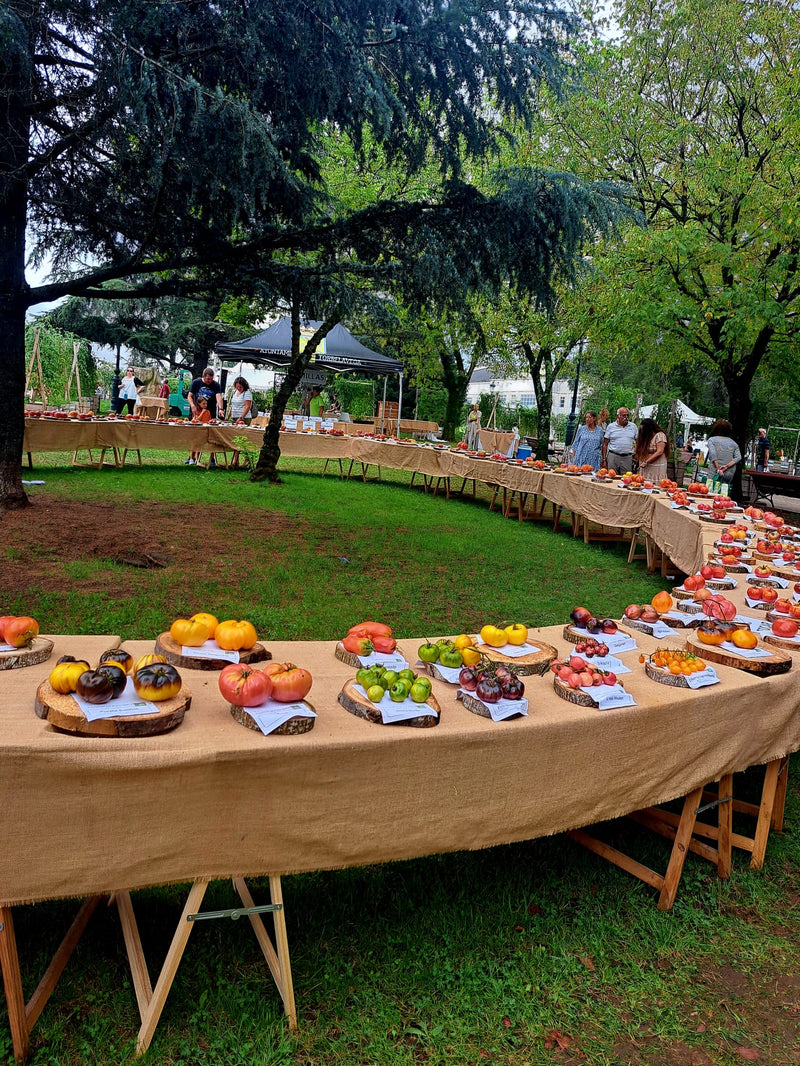Infinite Seeds
The Association for the Defense and Recovery of the Horticultural Heritage of Cantabria is a non-profit organization also known as "Simientes Infinitas." It has been registered since 2020 in the Registry of Associations of Cantabria and in the municipal registry of Torrelavega (625).
The general purposes set out in our statutes are
- Defense and Recovery of the Horticultural Heritage of Cantabria.
- Conservation of Biodiversity and Natural, Cultural and Landscape Heritage.
- Rehabilitation of rural areas and reversal of depopulation.
- Defense and promotion of organic production.
Our Goals
Preservation of Genetic Diversity and the rationale or motivation
The genetic diversity of traditional cultivars is threatened by intensive, standardized, industrial agriculture. Traditionally, the selection of plant varieties responded to organoleptic criteria and environmental adaptability. Today, the use of phytosanitary products, the use of "improved" and transgenic varieties, as well as selection based on yield, adaptation to transport, ripening schedule, etc., contribute to genetic erosion; loss of varieties, loss of biodiversity. Traditional varieties, with a broader and more heterogeneous genome spectrum, are the repository where one turns to search for a particular gene responsible for a plant's qualities, be it resistance to drought, salinity, or pests and diseases. They are the library where researchers turn to improve varieties. The loss of varieties is not only worrying from the perspective of food sovereignty but also entails a loss of intangible cultural heritage. Traditional cultivation systems incorporate a corpus of intangible elements that includes rituals, gestures, place names, symbols, and legends. A memory of the landscape that shapes our territory. Traditional local farming strengthens economic sustainability by helping to establish a population, as well as environmental sustainability by contributing to the reduction of greenhouse gas emissions and limited CO2 capture.
We understand that our project could be aligned with local and regional agendas, strategic European funding plans, and several of the 17 UN SDGs. To highlight a few:
Convention on Biological Diversity
The Simientes Infinitas Association aligns itself with the objectives of the Convention on Biological Diversity (Earth Summit, Rio de Janeiro, signed in December 1993) by working to recover traditional vegetable varieties. This recovery is carried out both ex situ in the Campuzano greenhouse and through the distribution of seeds and seedlings for citizens to grow in their orchards, gardens, and plots of land, in an in situ conservation effort.
Cultural Heritage
In addition to this conservation work, we are also recovering the cultural heritage of lifestyles and ways of working, an ethnographic and cultural heritage inherent in the cultivation of heirloom vegetable varieties.
Food Sovereignty
The (greater) genetic variability of traditional crops makes them more resilient, and their (self-)cultivation strengthens our society's food sovereignty. (When we try an heirloom tomato, we realize that the ones from the supermarket are simply something else, that they have no resemblance to food.)
Health
The health benefits come not only from the higher quality and traceability of the food we eat, but also from the fact that gardening involves interaction with nature. Numerous studies have quantified the benefits that contact with nature provides to people's health, including cardiovascular, respiratory, and vascular health, as well as mental health. Gardening improves quality of life, a sense of community, satisfaction, and interpersonal relationships.
Green Infrastructure
Current urban renaturalization efforts respond to this rationale for applying Nature-Based Solutions (NBS). Neighborhood gardens represent an important type of Municipal Green Infrastructure asset, acting as biodiversity nodes that integrate with the "corridors" and "stepping stones" of other Natural Capital assets in our cities.


